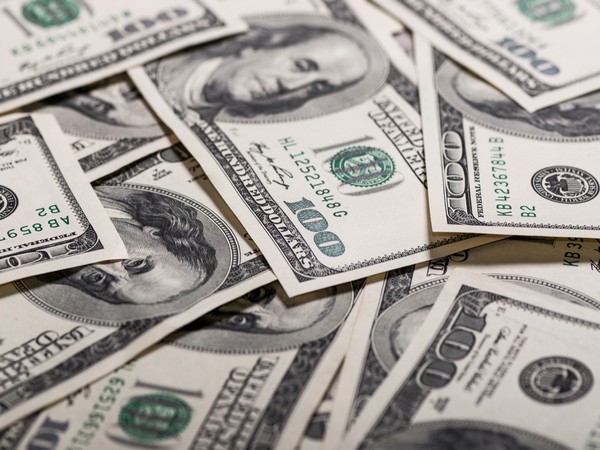FOREX-Dollar heavy amid U.S. default risks; Aussie, yuan slip on China data miss
The Aussie dollar flipped from early small gains to a loss after economic data from key trading partner China fell short of analysts' forecasts, adding to evidence of a sputtering COVID recovery. The U.S. dollar index - which measures the currency against a basket of six major peers - was little changed at 102.46, after sliding 0.26% overnight and retreating from a five-week high.

- Country:
- United States
The U.S. dollar remained under pressure on Tuesday, weighed down by the risk of a U.S. default as a standoff between Democrats and Republicans over raising the debt ceiling showed few signs of being resolved. The Aussie dollar flipped from early small gains to a loss after economic data from key trading partner China fell short of analysts' forecasts, adding to evidence of a sputtering COVID recovery.
The U.S. dollar index - which measures the currency against a basket of six major peers - was little changed at 102.46, after sliding 0.26% overnight and retreating from a five-week high. The dollar had been buoyed last week by both safe-haven demand amid weak Chinese economic data and by a surprise jump in U.S. consumer inflation expectations, putting the risk of a June Federal Reserve rate rise back in play.
This week, though, the looming borrowing limit - which Treasury Secretary Janet Yellen reiterated could be hit as soon as June 1 - has forced its way to the front of investor minds. President Joe Biden expressed confidence a deal could be done in time ahead of an expected meeting with congressional leaders later on Tuesday. However, Republican House of Representatives Speaker Kevin McCarthy said the two sides were still far apart.
"U.S. dollar price action has been very messy in recent days, reacting sharply to data," said Sean Callow, a senior FX strategist at Westpac. "There is also arguably some debate over what increased stress over the debt ceiling means for USD," he added. "JPY and CHF seem likely beneficiaries, but we have numerous historical examples of global market trauma caused by the U.S. that actually sees the dollar strengthen."
Westpac sees the potential for the dollar index to drop to around 101.05 in the near term. The euro, which has the greatest weight in the dollar index, was little changed at $1.0873 on Tuesday, after bouncing off a five-week low overnight.
Sterling slipped 0.1% to $1.2520, following a 0.67% rally from Monday. The yen, which had been hit by the wider spread between U.S. and Japanese long-term yields, pulled itself off a nearly two-week low.
The dollar lost 0.11% to 135.965 yen after rising to 136.32 on Monday. The 10-year Treasury yield eased to around 3.49% in Tokyo from as high as 3.511% overnight.
The dollar was steady at 0.89545 Swiss franc. The Australian dollar, which is not part of the dollar index, erased small early gains heading into the Chinese retail sales and industrial production data, then sank further after the release. It was last down 0.27% at $0.6682.
"The Aussie's upside looks to have been capped for some time by investor concerns over China's outlook," said Westpac's Callow. "Today's data will set the Aussie back on its heels," he added, predicting the currency could ease to around 0.6645, the lower limit of its recent trading range.
The offshore Chinese yuan weakened towards a two-month low. The dollar gained 0.14% to 6.9674 yuan, after touching 6.9749 on Monday for the first time since March 10.
(This story has not been edited by Devdiscourse staff and is auto-generated from a syndicated feed.)
ALSO READ
U.S. Lawmakers Visit Greenland Amid Tensions Over Trump's Seizure Threats
South Korea's $350 Billion U.S. Investment: A Delayed Start Amid Currency Concerns
Eurozone Bonds: Steady Yields Amid U.S. Market Fluctuations
Taiwan Seeks Strong AI Partnership with U.S. through Major Investment Deal
Yen Soars Amid U.S.-Japan Intervention Talks as Election Looms










